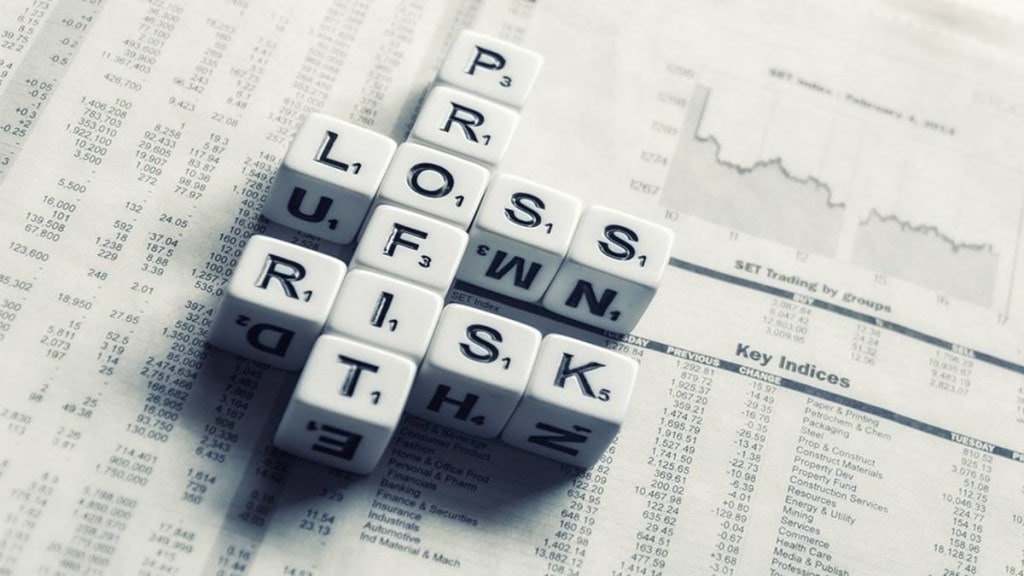Bloomberg: US equity-index futures fell Tuesday as traders prepared for another busy day of earnings ahead of the Federal Reserve’s policy meeting next week. Treasury yields dipped for a second day and the dollar was steady.
Futures on the S&P 500 and Nasdaq 100 fluctuated before turning lower after Monday’s strong performance on Wall Street. A fifth of S&P 500 companies have now posted third-quarter earnings, with more than half outperforming estimates, though investors are concerned the effects of a slowing economy will be felt further down the line. Alphabet Inc. and Microsoft Corp. are among the major companies reporting today.
Also Read: 100% probability of a recession in the US?
The Stoxx Europe 600 Index erased an early advance, with chemicals the worst-performing sector as Linde Plc dropped after proposing to de-list from the Frankfurt exchange. Banks underperformed as the ECB considers curbing windfall profits from rising interest rates, while HSBC Holdings Plc plunged more than 7% after reporting higher-than-expected charges for possible loan losses. On the plus side, UBS Group AG buoyed financial services after it exceeded earnings estimates, while technology stocks climbed after software developer SAP SE’s third-quarter revenue beat.
Also Read: S&P 500 Earnings Calendar This Week: Stocks to watch will be Apple, Microsoft, Boeing, Exxon, Biogen
“What we’ve seen throughout the year is that equity risk premia have really compressed,” Christian Mueller-Glissmann, Goldman Sachs managing director for portfolio strategy, said on Bloomberg TV. “That makes you more vulnerable if you disappoint on growth, cash flows, et cetera. For now, that hasn’t happened really, but all the lead indicators are pointing to risks in this direction.”
Manufacturing and services data for the US underwhelmed on Monday, indicating Federal Reserve rate hikes are beginning to slow activity. Fed officials have entered a blackout period ahead of the central bank’s meeting next week, where it’s expected to raise rates 75 basis points. Investors are starting to speculate that the central bank may be approaching the end of its aggressive tightening campaign.
“Investors are getting more confident that inflation will soften as the consumer rethinks massive purchases,” said Edward Moya, a senior markets analyst at OANDA Corp. “Fed rate-hike expectations will remain volatile, but expectations are growing that a weaker economy will let the Fed pause their tightening after the February policy meeting.”
Analysts are also expecting a jumbo hike of 75 basis points from the ECB on Thursday, even as many economists now reckon a recession has begun in the euro region. German business confidence improved in October, data showed Tuesday, though remained at depressed levels as Europe’s largest economy heads into a challenging winter.
A gauge of global stocks held a small advance as Chinese stocks staged a modest rebound following Monday’s historic selloff, with traders weighing cheap valuations against the prospects of more market-unfriendly policies during President Xi Jinping’s third term.
The offshore yuan fell to the lowest level since trading began a dozen years ago, as Xi’s power grab raised concern that concentrated decision-making could weaken growth and destabilize geopolitics. The decline extended after China’s central bank set the official fixing rate for the currency at the lowest level in 14 years.
“We’re certainly staying away from the Chinese market right now because the political scene is not favorable,” Laila Pence, president of Pence Wealth Management, said in an interview on Bloomberg TV. “There’s a lot less risk in the US and just as much upside.”
Elsewhere in markets, oil steadied as traders assessed near-term supply tightness in the crude market and broad appetite for risk assets including commodities. Gold was also steady. Bitcoin continued to track sideways, holding above $19,000.
